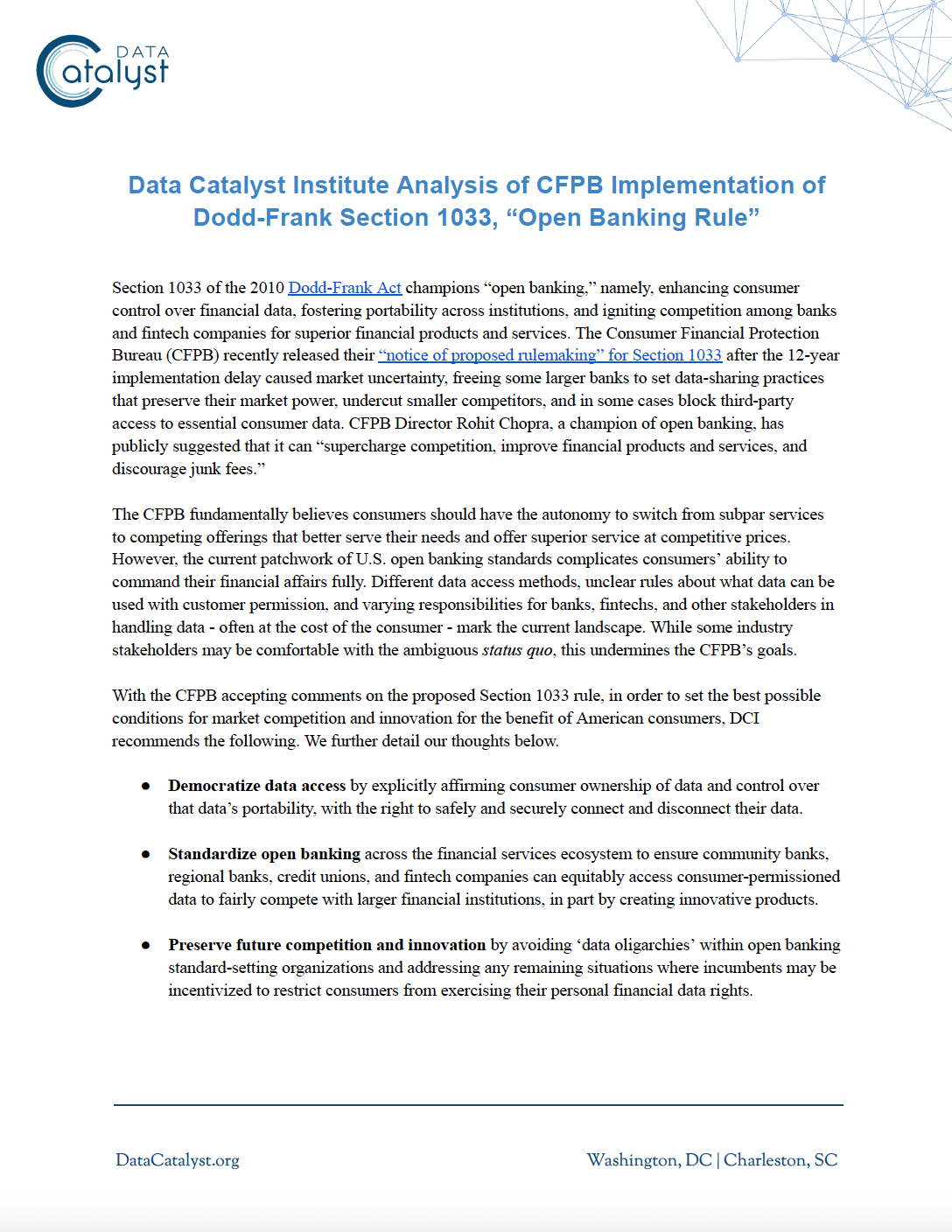
Analysis of CFPB Implementation of Dodd-Frank Section 1033, “Open Banking Rule”
December 2023
Section 1033 of the 2010 Dodd-Frank Act champions “open banking,” namely, enhancing consumer control over financial data, fostering portability across institutions, and igniting competition among banks and fintech companies for superior financial products and services. The Consumer Financial Protection Bureau (CFPB) recently released their “notice of proposed rulemaking” for Section 1033 after the 12-year implementation delay caused market uncertainty, freeing some larger banks to set data-sharing practices that preserve their market power, undercut smaller competitors, and in some cases block third-party access to essential consumer data. CFPB Director Rohit Chopra, a champion of open banking, has publicly suggested that it can “supercharge competition, improve financial products and services, and discourage junk fees.”
The CFPB fundamentally believes consumers should have the autonomy to switch from subpar services to competing offerings that better serve their needs and offer superior service at competitive prices. However, the current patchwork of U.S. open banking standards complicates consumers’ ability to command their financial affairs fully. Different data access methods, unclear rules about what data can be used with customer permission, and varying responsibilities for banks, fintechs, and other stakeholders in handling data – often at the cost of the consumer – mark the current landscape. While some industry stakeholders may be comfortable with the ambiguous status quo, this undermines the CFPB’s goals.
With the CFPB accepting comments on the proposed Section 1033 rule, in order to set the best possible conditions for market competition and innovation for the benefit of American consumers, DCI recommends the following.
- Democratize data access by explicitly affirming consumer ownership of data and control over that data’s portability, with the right to safely and securely connect and disconnect their data.
- Standardize open banking across the financial services ecosystem to ensure community banks, regional banks, credit unions, and fintech companies can equitably access consumer-permissioned data to fairly compete with larger financial institutions, in part by creating innovative products.
- Preserve future competition and innovation by avoiding ‘data oligarchies’ within open banking standard-setting organizations and addressing any remaining situations where incumbents may be incentivized to restrict consumers from exercising their personal financial data rights.

Analysis of CFPB Implementation of Dodd-Frank Section 1033, "Open Banking Rule"
The Data Catalyst Institute
December 2023